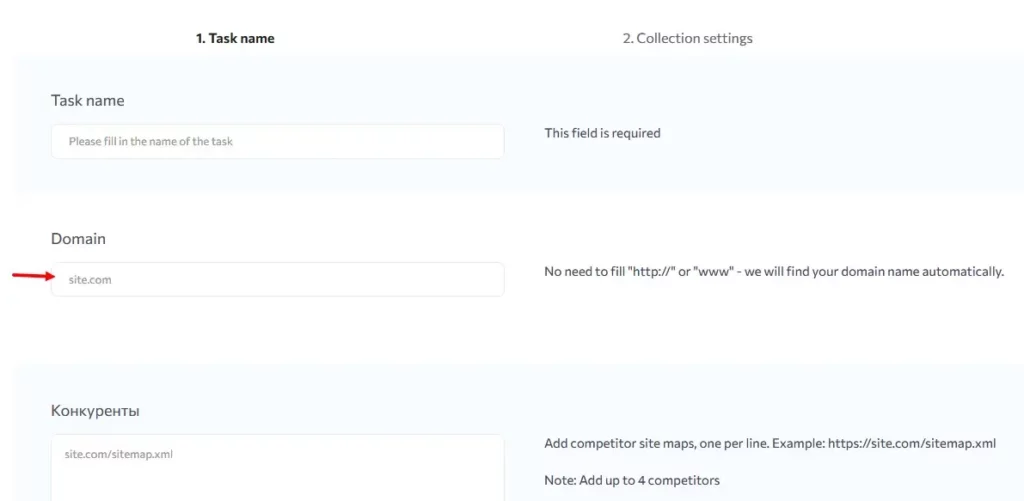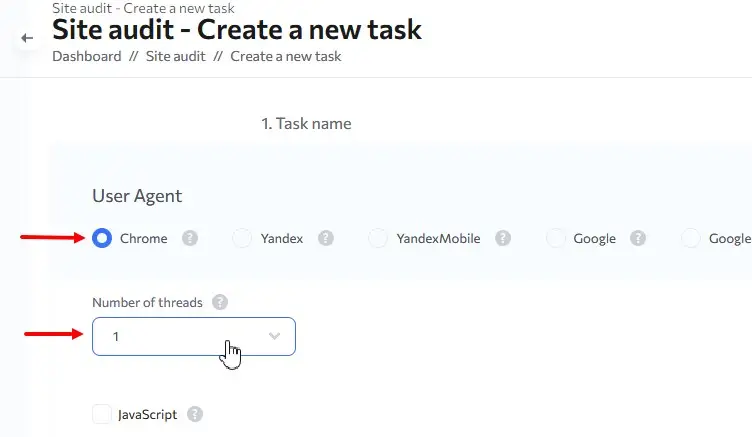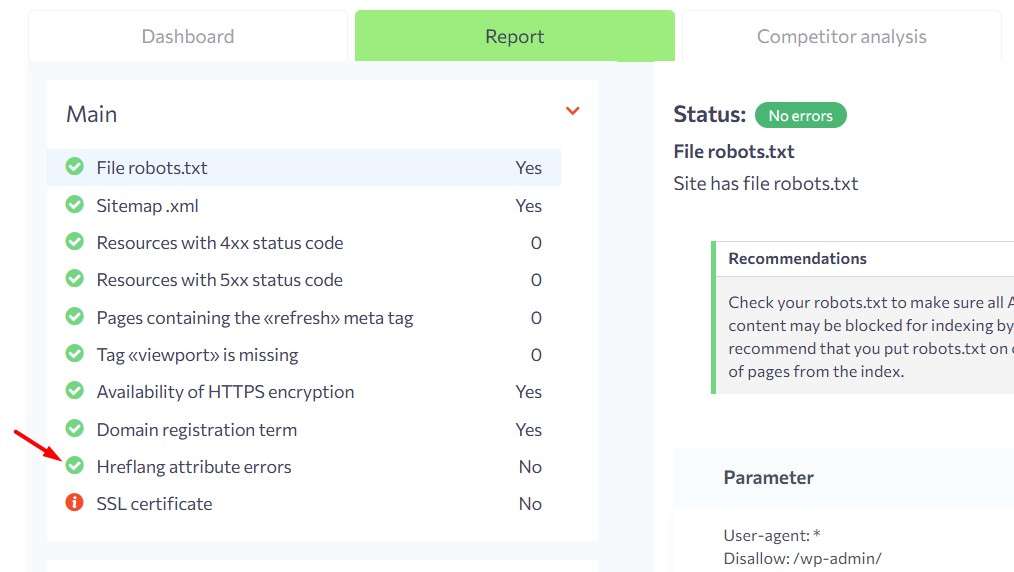Hreflang Checker
Ensure international SEO accuracy with our hreflang checker. Easily detect errors, validate hreflang tags across all pages, and optimize multilingual targeting in just minutes.
The first 7 days are free.
No credit card needed!
Main features
Detect hreflang conflicts instantly
- Scan your entire website and find hreflang tag errors in seconds. Our hreflang checker highlights broken links, missing return tags, wrong language codes, and country mismatches.
Bulk URL support
- Upload a sitemap, an Excel file, or paste a list of URLs — our tool will validate each hreflang implementation with precision.
Compare with competitors
- See how your hreflang tags stack up against your main international SEO rivals. Understand where they fail and where you can outperform.
Get clear, visual results
- Each scan includes a structured report showing hreflang placement, page-by-page validation, and exact tags found on your site. We highlight missing bidirectional linking to ensure mutual hreflang consistency.
How to Check Your Hreflang with Rush Analytics
Using our hreflang tag checker is simple and intuitive.

Create an audit project
Start by creating a new project in your Rush Analytics dashboard. Enter your website URL and give the project a name for quick reference.
Configure crawl settings
Choose your preferred scanning depth and upload your list of URLs — via sitemap, Excel file, or manual input. Make sure the audit mode includes hreflang validation.


Launch and review results
Once the scan is complete, go to the Hreflang section in your audit report. There, you’ll find a breakdown of valid and invalid tags, missing return links, and tag mismatches including broken hreflang links or non-reciprocal alternates — all organized by page. Each issue includes context about the expected hreflang annotation. Use this to correct errors and optimize your multilingual SEO setup. Ideal for managing large multilingual websites with country-targeted content.
Start using Rush Analytics today
Get 7 days free trial access to all tools.
No credit card needed!

What are the advantages of using an hreflang checker?
Incorrect hreflang markup can cause search engines to show the wrong version of your site to international users — or not show anything at all. This may result in alternate pages not being indexed correctly. Our checker ensures your regional pages are properly linked and indexed, helping avoid duplicate content issues and lost rankings. With regular audits, you can maintain clean multilingual architecture and avoid critical SEO mistakes.
What is the purpose of the user-agent setting in an hreflang checker?
Different user-agents (Googlebot, Bingbot, etc.) can parse hreflang in slightly different ways. Our checker allows you to simulate specific user-agents so you can test how your hreflang implementation behaves across search engines and spot inconsistencies early.
Is it necessary to check the hreflang setup for each individual page?
Yes — hreflang must be validated page by page. A single broken or missing hreflang tag can compromise an entire language cluster and confuse Google and other bots. Our tool automates this process across thousands of pages, ensuring nothing slips through.
Get 7 days free trial access to all tools.
Get the recommendations that will improve your website immediately
Try for freeRelated Features
FAQ
Discover more about our hreflang checker by navigating through our
Frequently Asked Questions Guide ➜Why do we use hreflang?
To help search engines show the right version of a page to users based on their language and region — avoiding duplicate content issues and improving international SEO.
What is the difference between href and hreflang?
href defines the page URL, while hreflang tells search engines which language and region that page targets. They work together to support alternate language versions.
What is the best practice of hreflang?
Use ISO 639-1 for language codes and ISO 3166-1 Alpha 2 for countries. Always include return tags, and verify implementation across all indexed pages regularly.